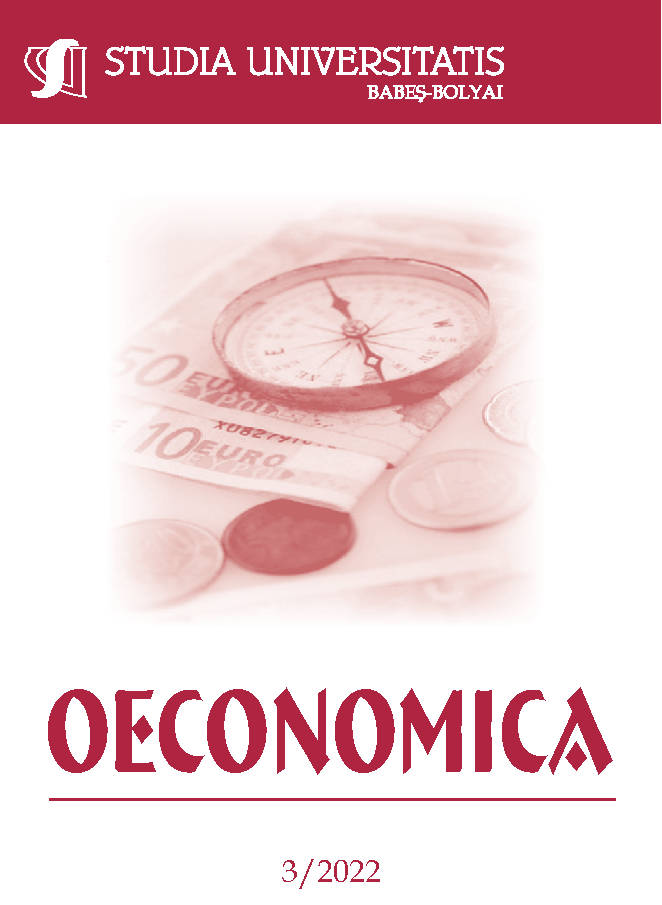HR TRENDS AND TENDENCIES IN HUNGARY IN THE LIGHT OF THE EXPERIENCES OF THE LATEST CRANET SURVEY 2021
DOI:
https://doi.org/10.2478/subboec-2022-0011Keywords:
Human Resources Management, trends and tendencies, Hungary, CranetAbstract
The regime change in 1989 marked a significant milestone in the development of human resource (HR) management in Hungary. Changes in the legal, institutional and ownership environment placed significantly different demands on the HR work of companies and institutions. It has become very important for organizations to have access to comparative HR data with other organizations related to HR activities. The Cranet international HR university non-for-profit research network, founded in 1989 in Cranfield, England, has a long tradition in this field. Hungarian researchers have participated in Cranet’s international HR research on four occasions so far. In this article, we aim to present the main features of the Cranet HR research in Hungary in 2021. We review the findings and noteworthy results of the research. Where possible, we compare it with relevant data from the 2014-2016 survey.
JEL classification: M50, M51, M52, M53, M54
References
Chikán A. (2020). Business economics. (In Hungarian). Budapest: Akadémiai Kiadó.
Diamond, J. (2019). Upheaval Turning Points for Nations in Crisis. New York: Little, Brown and Company.
Fazekas K., Csillag M, Hermann Z. & Scharle Á. (2021). The Hungarian Labour Market 2019. Budapest: Institute of Economics. Centre for Economic and Regional Studies.
Fergusson, N. (2021). Doom. – The Politics of Catastrophe. New York: Penguin Book.
Gartner (2021). Future of Work Trends Post-COVID-19-trophe. Gartner for HR-Long-Term Impact & Actions for HR. Gartner. https://www.gartner.com (Accessed: December 1, 2021)
Hiltrop, J. (1991). Human resources practices of multinational organizations in Belgium. European Management Journal, 9(4),404-411.
Karoliny, M.né., Ásványi, Zs. & Bálint, B. (2017). Human resourcing systems: recruitment, selection, integration and downsizing. In: Karoliny, M-né., & Poór, J. (2017). Human Resource Management Handbook. (6th edition) (In Hungarian) Budapest: Wolters Kluwer Publihing House, 165–202.
Karoliny M-né & Poór J. (2019). Major trends of tendencies in three decades of HR developments in Hungary in lights of international comparisons. (In Hungarian) Budapest Management Review 50(12), 149-160. DOI: 10.14267/VEZTUD.2019.12.1
Kazlauskaite, R., Buciuniene, I., Poór, J., Karoliny, Zs., Alas, R., Kohont, A. & Szlávicz, Á. (2013). Human Resource Management in the Central and Eastern European Region. pp. 103-121. In: Parry, E., Stavrou, E. & Lazarova, M. (Eds.): Global Trends in Human Resource Management. London: Palgrave-Macmillan.
Kovács, I.É, Poór, J., & Karoliny M-né (2018). Global, regional and local similarities and differences in human resource management, Space and Society (Tér és Társadalom) 32. (2), 128-147. (In Hungarian) https://doi.org/10.17649/TET.32.2.3030
KSH (2021). The number of registered economic organizations GFO’14 (2014–). (In Hungarian) Budapest: Központi Statisztikai Hivatal / Hungarian Central Statistical Office (KSH).
Lazarova, M., Morley, M. & Tyson, S. (2008). International comparative studies in HRM and performance – the Cranet data; Introduction. International Journal of Human Resource Management, 19(11),995–2003.
Lewis, P.C. (2005). How the East Was Won. New York: Palgrave Macmillan.
Musztyné, Bátfai B. V. (2021). Regional characteristics of human resource management in the light of the Cranet 2005-2010-2016 surveys Knowledge Management (Tudásmenedzsment) (In Hungarian), 22(1), 188-206 (2021). doi: 10.15170/TM.2021.22.1.11
Parry, E., Morley, J. M. & Brewster, Ch. (2021). The Oxford Handbook of Contextual Approaches to Human Resource Management. Oxford: Oxford University Press.
Pató, B.Sz.G., Poór,J., Hevesi, E., Kovács, K. Kőműves, Zs.S., Grotte, J., Szabó, Sz., Kunos, I., Metszősy, G., Hegedűs, H., Karácsony, P. & Dajnoki, K. (2022). Coronavirus crisis challenges and HR responses – Hungary 2020 – framework of domestic research. Journal of East European Management Studies, 22(3), 551-577.
Poór, J., Kollár, P., Kovács, I. É., Suhajda, Cs., Farkas, P., Tóth, K. & Szabó, K. (2018). Szervezeti képzések gyakorlata Magyarországon a nemzetközi adatok tükrében. Vezetéstudomány - Budapest Management Review, 49 (10-11). 34-44. https://doi.org/10.14267/VEZTUD.2018.10.03
Poór J., Engle, A.D., Blstáková, J. & Joniaková, Z. (2018). Internalisation of Human Resource Management. New York: Nova Publishing.
Szabó-Bálint, B. (2018). Employee success and organizational career management tools supporting its achievement. Management Science – Budapest Management Review (Vezetéstudomány) (In Hungarian) 49 (10-11). pp. 85-92. https://doi.org/10.14267/VEZTUD.2018.10.08
Tooze, A. (2022). Ukraine’s War Has Already Changed the World’s Economy. Foreign Policy. https://foreignpolicy.com/2022/04/05/ukraine-russia-war-world-economy/ (Accessed: April 17, 2022).
Világgazdaság (2018). 99% of Hungarian companies belonging to category of SMEs. (In Hungarian) Világgazdaság (Journal of World Economy), https://www.vg.hu/vilaggazdasag-magyar-gazdasag/2018/11/kis-es-kozepvallalat-a-magyar-cegek-tobb-mint-99-szazaleka (Accessed: 24 June, 2022)
Downloads
Published
How to Cite
Issue
Section
License
Copyright (c) 2022 Studia Universitatis Babeș-Bolyai Oeconomica

This work is licensed under a Creative Commons Attribution-NonCommercial-NoDerivatives 4.0 International License.






